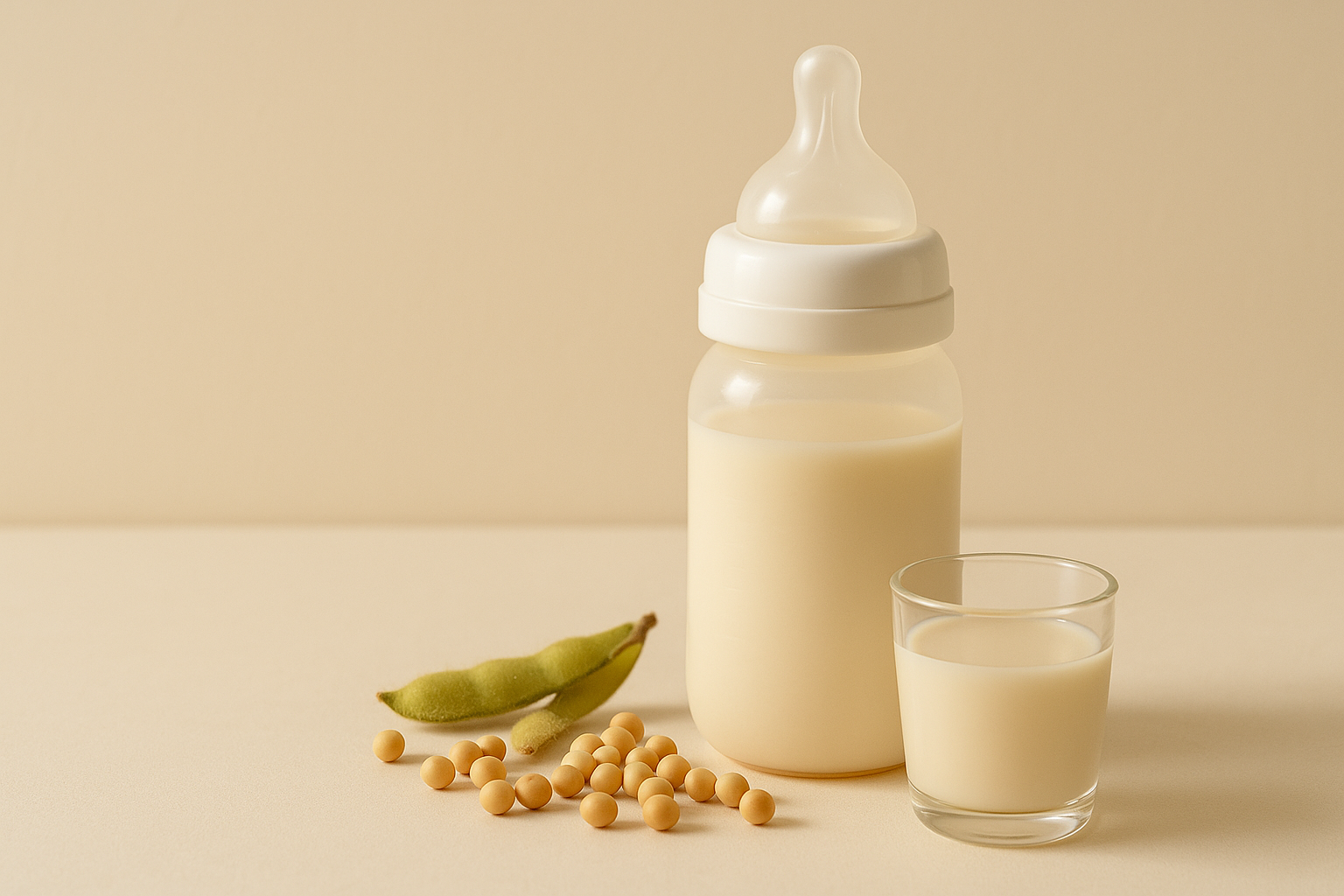Breastfeeding: The Most Natural and Nutritional Start for Newborns
Breastfeeding is one of the most natural and powerful ways to nurture your baby in the first months of life. To breastfeed your infant allows them to receive human breast milk, which is rich in vital nutrients, immune-protective compounds, and provides emotional comfort. Breast milk contains everything your baby needs to grow and develop. The act of breastfeeding is not only a source of food but also a deep connection between mothers and babies.
The World Health Organization recommends exclusive breastfeeding for the first six months of life, followed by continued breastfeeding alongside appropriate complementary foods for up to two years or beyond. The American Academy of Pediatrics also recommends continued breastfeeding for up to 2 years or longer. This approach offers the greatest nutritional benefits, supporting the baby’s health, development, and immunity, and lowers the risk of many common childhood illnesses. Mothers also experience significant advantages, and the benefit of breastfeeding extends to both the baby's and mother's health.
Breastfeeding also provides important benefits for women after pregnancy, supporting postpartum recovery and overall well-being. Additionally, breastfeeding may help lower the risk of postpartum depression in mothers.
What Does Breastfeed Mean?
To breastfeed is to nourish your baby with breast milk directly from the mother’s body. This process begins shortly after birth, as the baby is placed close to the breast to stimulate milk flow. Healthcare providers advise to start breastfeeding immediately after birth if possible. The baby’s mouth must be open wide to latch properly, ensuring a big mouthful and a good seal around the breast tissue. A proper latch allows the baby to draw breastmilk effectively and stimulates milk supply.
How Do You Breastfeed?
Breastfeeding mothers can follow these tips for successful nursing:
- Hold your baby close: Skin-to-skin contact helps stimulate milk flow and comforts your newborn.
- Ensure a good latch: The baby’s lips should form a seal, with the mouth wide open, covering more of the areola below the nipple.
- Feed on demand: Most babies need to nurse every 2–3 hours, especially in the first few days.
- Alternate breasts: Switching sides helps stimulate milk supply evenly.
- Seek advice from a lactation consultant: For breastfeeding difficulties, expert support can make a huge difference.
A lactation consultant can also help if you're facing challenges like low milk supply, breast pain, or slow weight gain in your baby.
What Are the Benefits of Breastfeeding by Month?
Breastfeeding provides age-appropriate nutrition tailored to your baby’s development:
- Month 1–2: Boosts immunity with colostrum and antibodies, protects against ear infections and respiratory illnesses.
- Month 3–4: Supports healthy growth and brain development with natural fats and vitamins.
- Month 5–6: Prepares the baby for complementary foods, continues to promote digestive health.
- Month 6 and beyond: Contributes to lower risk of obesity, diabetes, and infections, especially when combined with healthy feeding habits.
Breastfeeding recommendations and growth standards are designed to support children from infancy through early childhood. These guidelines help ensure that children receive optimal nutrition and health benefits as they grow.
How Is Growth Assessed for Breastfed Infants?
Breastfed infants grow at their own pace, and it’s important to use the WHO growth standards when assessing their development. Normal weight gain for a breastfed baby is between 20 and 30 grams per day or between 150 and 210 grams per week. Growth should be evaluated by:
- Weight gain patterns over time
- Length/height for baby’s age
- Head circumference
Doctors or lactation consultants can help interpret growth charts and offer support if your baby isn’t gaining weight or feeding efficiently.
Certain medical conditions can affect breastfeeding and infant growth. If you have concerns about your baby's development or your own health, consult a healthcare provider. Certain medical conditions or prior surgeries can impact your body's process of producing and releasing milk.
It’s also important to know that formula fed infants and exclusively breastfed babies may grow at different rates. Human milk provides optimal nutrition with perfectly balanced proteins, fats, and carbohydrates, designed to meet the unique needs of infants. If breastfeeding isn't doable for you, you should talk to your baby's pediatrician about the best formula for your baby.
Safety and Storage of Human Milk
For many breastfeeding mothers, expressing and storing breast milk is an essential part of supporting their baby’s nutrition—especially when returning to work or needing to be away from their little one. Proper handling and storage of human milk help ensure that breastfed infants continue to receive all the nutritional benefits and immune protection that breast milk provides. The Transportation Security Administration allows air travelers to bring breast milk, formula, and juice over 3.4 ounces in their carry-on baggage.
To keep your milk supply safe and fresh, always use clean, sterilized containers for collecting and storing breast milk. After expressing, label each container with the date and time, so you can use the oldest milk first and keep track of your baby’s feeds. Breast milk can be safely stored in the refrigerator for up to three to five days, or in the freezer for up to six to twelve months. When it’s time to feed your baby, gently swirl the milk to mix the fat, and avoid using the microwave, which can create hot spots and damage valuable nutrients.
If you encounter breastfeeding difficulties, such as low milk supply or concerns about whether your baby is getting enough milk, don’t hesitate to seek advice from a lactation consultant. These professionals can offer personalised breastfeeding support and practical solutions to help you continue breastfeeding successfully. Frequent feeding and ensuring a good latch—with your baby’s mouth wide open and the upper lip curled up—can help maintain healthy milk flow and support your milk ducts.
Remember, every mother’s journey is unique. Whether you are exclusively breastfeeding, combining breast feeds with other foods, or navigating the weaning process, prioritizing safe milk storage and ongoing breastfeeding support will help you and your baby thrive and enjoy the lifelong health benefits of human milk.
When to Stop Breastfeeding?
The weaning process is personal and depends on the mother’s and baby’s needs. Some mothers continue to breastfeed through toddlerhood, while others choose to stop breastfeeding earlier.
Key signs that your baby is ready to wean:
- Eating more complementary foods
- Losing interest in most feeds
- Sleeping through the night without needing to feed
Always make gradual changes and seek advice from a healthcare professional if you’re unsure.
Conclusion: Breastfeeding Supports Lifelong Health
To breastfeed is to provide your child with the best possible start in life. From building the baby’s immune system to promoting a strong mother-child bond, breastfeeding supports lifelong health and emotional well-being.
Whether you’re a first-time mother or navigating extended breastfeeding, remember that every child and baby is different. Supporting women in their breastfeeding journey is essential, as both mother and baby benefit from important health advantages related to breastfeeding. With the right support, tools, and information, you can create a breastfeeding journey that works for both you and your baby.
%201.svg)












